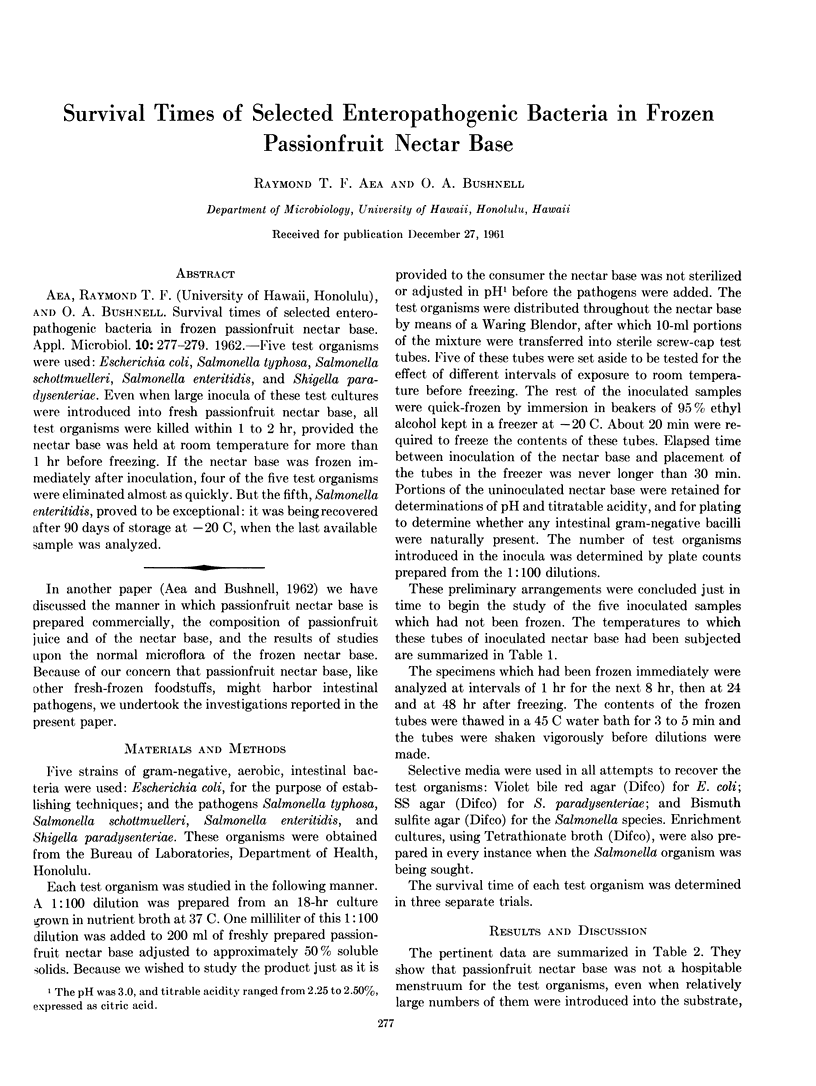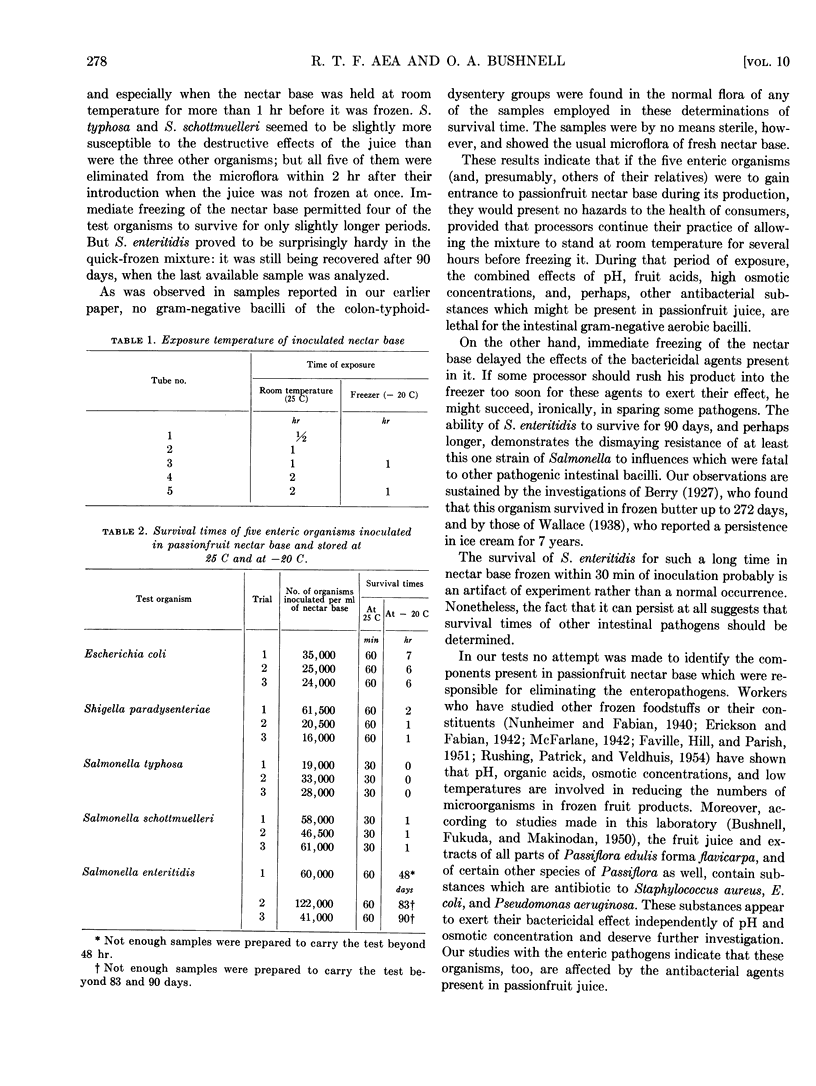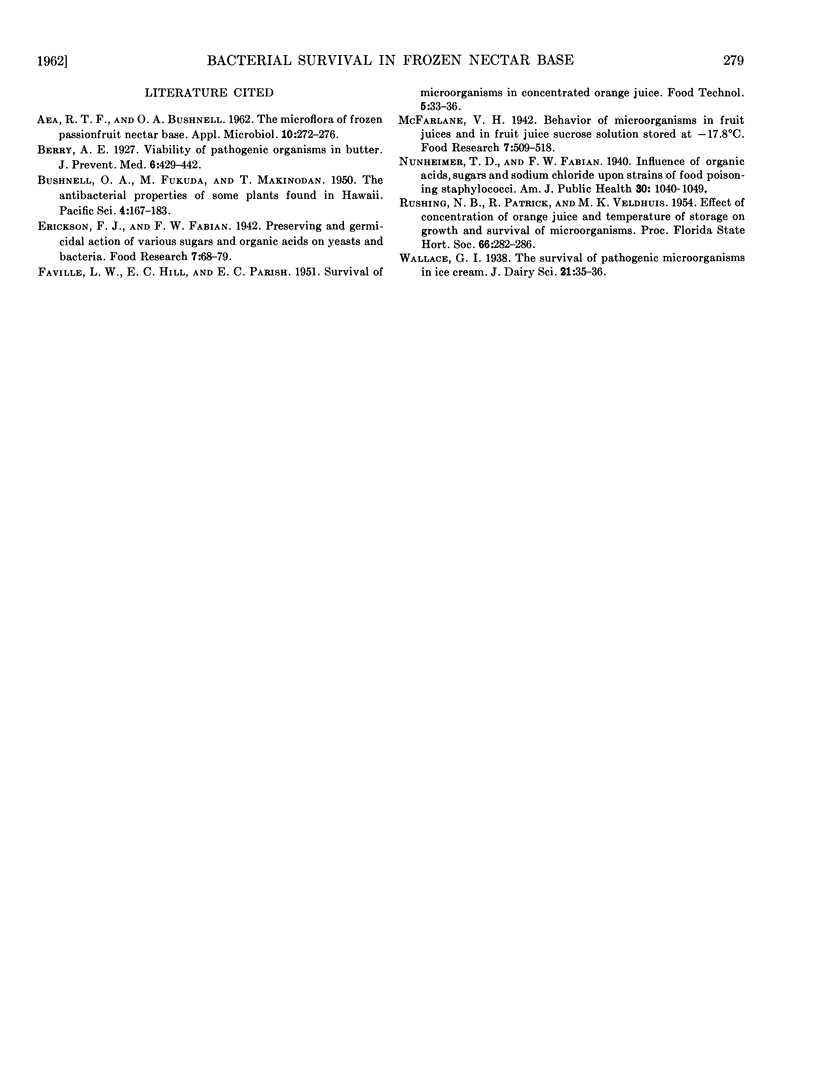Abstract
Five test organisms were used: Escherichia coli, Salmonella typhosa, Salmonella schottmuelleri, Salmonella enteritidis, and Shigella paradysenteriae. Even when large inocula of these test cultures were introduced into fresh passionfruit nectar base, all test organisms were killed within 1 to 2 hr, provided the nectar base was held at room temperature for more than 1 hr before freezing. If the nectar base was frozen immediately after inoculation, four of the five test organisms were eliminated almost as quickly. But the fifth, Salmonella enteritidis, proved to be exceptional: it was being recovered after 90 days of storage at -20 C, when the last available sample was analyzed.
Full text
PDF


Selected References
These references are in PubMed. This may not be the complete list of references from this article.
- AEA R. T., BUSHNELL O. A. The microflora of frozen passionfruit nectar base. Appl Microbiol. 1962 May;10:272–276. doi: 10.1128/am.10.3.272-276.1962. [DOI] [PMC free article] [PubMed] [Google Scholar]
- Nunheimer T. D., Fabian F. W. Influence of Organic Acids, Sugars, and Sodium Chloride upon Strains of Food Poisoning Staphylococci. Am J Public Health Nations Health. 1940 Sep;30(9):1040–1049. doi: 10.2105/ajph.30.9.1040. [DOI] [PMC free article] [PubMed] [Google Scholar]


